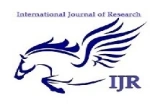Muhammad Tariq ,Hammad Tahir ,Kanwal H Tahir Ranjeet Kumar
Abstract
This paper is designed to discover the demographic uniqueness of women entrepreneurs in Pakistan. Moreover, this paper is also aimed to investigate the degree of control for social insinuations on women entrepreneurs. The study was carried out the Sind province of Pakistan. A representative sample of population was selected from Karachi city of province Sind, Pakistan.
150 questionnaires were distributed among the female entrepreneurs and 120 responded to it.
The study concludes that Entrepreneurship is a powerful factor for today’s wealth of knowledge to achieve its spirited and energetic moral fiber. It is the pouring force for the accomplishment of economic growth and employment generation, enhancing, at the same time, to self growth and efficiently transnationalizing with various societal phenomenon. In Pakistan, women chipping in entrepreneurial motions are very poor. Rationale of this investigation was to discover the social, cultural and economic insinuations of women entrepreneurship and classify the reasons and inspirational features, obstructions and feminist’s biasness. The investigation has exposed that woman chipping in entrepreneurial commotions in Pakistan are largely wedded with poor literacy level and with grown up age which is 32-50 years.
Keywords. Entrepreneurship, Empowerment, Social Justice.
- INTRODUCTION
Now-a-days, female entrepreneurship is a famous building block of economy. To achieve spirited place in vibrant economy, it is necessary to get information of all features of women entrepreneurship. Female entrepreneurship; looks like to be the inspiring verve to attain economic development. It is the path to create jobs which can add value to personal development concurrently. Numerous economic and social tribulations, all over the world, could efficiently be dealt with (Sarri and Trihopoulou, 2004). In last two and a half decades, many Western-European states have witnessed a bump up in women entrepreneurship as an effect of cultural, political and economic transform (OECD, 1997).
Lots of states around the globe are vigorously looking for methods and techniques to endorse entrepreneurship. The vital character of women entrepreneurs could not be ruled out in various emergent states, where, female entrepreneurs are performing important responsibilities to assist their administration. The significance of SMEs discloses the appalling need to impart jobs. There is also a need to boost economic augmentation and generate additional resources for large-scale ventures in states that are not glowingly developed (Hailey, 1987).
Significance of the Study
Women entrepreneurship assists the procedure of economic growth, establishment of fresh employment, and curbs unemployment in underdeveloped areas. Entrepreneurship also assists in to cut back human resettlements. Women entrepreneurs have demonstrated that they can lever small scale schemes around the globe. Entrepreneurial motions are limited and are inadequate in Pakistan. A survey conducted by World Bank has calculated entrepreneurial motions in 84 rising & industrial countries in 2003-2005. Middling entrance tempo in Pakistan, measured as fresh entrants of companies annually (as a %age), registered businesses were 7%. This is lesser than lots of the regional standards worldwide (Mahmood et al., 2012).
Less entrepreneurial motions in Pakistan are discouraging and want consideration of public and private sector. SMEs are playing a significant role in economy of Pakistan. Large-scale motions are leading in manufacturing and also providing the lot of jobs. Enterprises having fewer than hundred employees are more or less 90% of all private endeavors in the industrial sector. SMEs are providing jobs to 78 % of the work force which is non-agriculturalist.
Problem Statement
Women entrepreneurs could not work in detached atmosphere. They perform their duties in the similar large-scale, authoritarian and institutional skeleton; where gentleman of the social order works. One should understand that the height of feminist’s bias-ness intensely have entrenched in our society, which limits the women’s mobility.
The business environment for females replicates the difficult interchange of lots of factors which could be separated into two fundamental categories.
1st Category encompasses of social, cultural, traditional and religious fundamentals. This facet of the society is shaped over from centuries. It is inherited in the structure of the society and obviously customary in the female’s subordinate standing. The gender narrow-mindedness of the system is very rigid and innate because its authenticity is depicted from the persistency of a conventional state of mind, accepted sacraments and a solid faith in the structure of society.
2nd category of issues is depicted from the 1st group. This category engrosses constitutional compositions, policy papers, regulatory provisioning and institutional instruments. It is modern not customary, so it’s unprejudiced.
The customary arrangements form complexities for females in broad and for entrepreneurs in special in two conducts: First, they are biased intrinsically; second they restrain the justness-based symphony of contemporary institutions and their just working, as up-to-the-minute institutions are resulted from conventional ones.
Objective of the Study
- To discover the demographic uniqueness of women entrepreneurs in Pakistan.
- To investigate the degree of control for social insinuations on women entrepreneurs.
Research Question
- Does literacy rate induce on participation of women entrepreneurs in Pakistan?
- Does work experience induce on participation of women entrepreneurs in Pakistan?
- LITERATURE REVIEW
This chapter highlights other scholars work on the inducing features of female entrepreneurs. The responsibility allotted to entrepreneurship; for fiscal & monetary augmentation and development particularly in the rising economies like USA, Germany, China, UK, Japan, Canada to correct their developmental thoughts and map and see new ventures development as very important to their economic troubles.
Entrepreneurship; as the largest force of economic expansion which is being lauded for its significance in the area of employment, revenue creation, poverty reduction and wealth conception. This phenomenon is now identified as the major element in the theory of economic development (Cheston & Kuhn, 2009) and it making up the biggest business sector in economy. It has been documented as the runner of job creation and economic development (Miner & Haunschild, 2005).
Small & Medium Enterprises are adding over 30% to Gross Domestic Product (GDP), earnings from export of manufacturing are 25% and 35% through value addition in the manufacturing sector. Maximum Small & Medium Enterprises are fabricating small value addition products; which budges on conventional expertise even if they manufacture one forth of exports through manufacturing (Chemin, 2007). Femininity biasness deters dealings of women, their vigorous economic inputs and opening to business expansion traits.
It is an unfortunate face of our society that woman totally deficient in liberty of tongue (Goheer, 2003). The business environment for females replicates the difficult interchange of lots of factors which could be separated into two fundamental categories.
Fereidouni, Masron, Nikbi and Ameri (2010)examine that when graduates take a step to start a business then fear of failure automatically builds in their minds, normally in Chinese culture the factor of fear is very common among them because they are afraid of loss in the business.
Liao and Sohmen (2001) conclude that it has very bad effects on the business and also effects on the effective decision, it builds the connection with destruction. It builds in the minds because of results of action. In regards of social negative impression about entrepreneurs Roxas, Cayoca-Panizales and Jesus (2008) concludes that for young graduates it creates lot of negativity in the minds of graduate entrepreneurs which are angriness, sadness and tension. It builds the sense of discouragement and fear that they will not become successful entrepreneurs without taking any steps towards it. In number of states, lots of facts are available which proves that female react in a diverse way against as expected (Duncan, 1991) because of dissimilar cultural ethics. Cultural ethics and conventional customs decide the level of independence of a person in numerous civilizations.
Entrepreneurship; is a wish able excellence which can abolish all the associates, correlated to economic growth, social inequalities and jobs.
Entrepreneurship is also significant for the help of SMEs (United Nations, 2006). With an active SMEs sub- sector in the production progression developed and under developed states are expected to rely low on big industries to drive their economy towards prosperity. This is due economic rejuvenation and expansion is expected to increase driven within the vehicle of entrepreneur formation and the industry group. Femininity bias-ness deters dealings of women, their vigorous economic inputs and opening to business expansion traits.
It is an unfortunate face of our society that woman totally deficient in liberty of tongue (Goheer, 2003). Small & Medium Enterprises are adding over 30% to Gross Domestic Product (GDP), earnings from export of manufacturing are 25% and 35% through value addition in the manufacturing sector. Maximum Small & Medium Enterprises are fabricating small value addition products; which budges on conventional expertise even if they manufacture one forth of exports through manufacturing (Chemin, 2007).
Entrepreneurship; is therefore, a procedure which involves a readiness to revive market aid, innovate, threat taking and being far upbeat than other players towards discovering new business openings (Miner & Haunschild, 2005). It draw attention of both male and female who are interested in profitable inter-industry affiliation. To make certain enough development in entrepreneurship; considerable research has examined the participation of both men and women. This group has quickly joined hands all together to attain success in business and enterprise development (Morris, 2006).
- RESEARCH METHODOLOGY & PROCEDURE
The research methodology is an organized way that is planned to answer the research problem. The objective of the research is to get information about Pakistani female entrepreneurs. This survey was devised on quantitative bases to discover the social, cultural and economic features liable for the women entrepreneurship.
The study was carried out the Sind province of Pakistan. A representative sample of population was selected from Karachi city of province Sindh, Pakistan.
150 questionnaires were distributed among the female entrepreneurs and 120 responded to it. The questionnaire was comprised of three sections, section A carried 10, section B carried 12 questions and section C comprised of 5 questions totaling to 27 questions. The addresses and contact numbers of Female entrepreneurs were taken from the official website of Trade Development Corporation of Pakistan (TDAP).
- Results and Interpretation
Data analysis is to describe facts after application of methods discovered by a research. It assists to sense blue print of data and researchers build up more explanations from data analysis. It is also desired for hypotheses testing.
- Demographic Features Of Female Entrepreneurs
- Age Group
The graph shows that a major part of the female entrepreneurs i.e. 36.7 percent are between 31 to 40 years old. 4.2 percent are below 20 years. Most Female entrepreneurs are of the superior age. In Pakistan youthful women do not adopt business field due to man domination. These results indicate the facts to confirm same findings by previous researches.
- Marital Status
Above graph indicates those 62.5 percent female entrepreneurs are married. In the other category falls 2.5 percent, which means that either they are divorced or separated. From the results, it is evident that cultural and social barriers are obstacles for unmarried and juvenile entrepreneurs.
- Education
65 percent female entrepreneurs are not even intermediate or metric. Only 10.8 percent have Masters Degree, which implies that greater part of women is uneducated. In Pakistan, literacy rate is very low.
- Business Type
24.2 percent female entrepreneurs are running garments business while only 10 percent are shopkeeper. The above results show that female entrepreneurs not interested in interactions with men.
- Breadwinner
The above graph shows that 48.3 percent breadwinner of female entrepreneur were husband and 21.7 percent were father, while only 29.2 percent were themselves. This clearly indicates that we live in men driven society, where income from women is not feel well.
- Number of Children
The graph shows that 30 percent female entrepreneurs have between1 to 3 children while only 14.2 percent have more than 5 children. Results of this research are also correlated with the previous findings of (Vatharkar, 2012).
- Type of Family
The above graph shows that 53.3 percent female entrepreneurs are from nuclear family, while 4.2 percent are from extended one. These results also matched with the findings of (Vatharkar, 2012).
- Basis And Inspirational Features Behind Businesses
The purpose of these queries is to examine the basis and inspirational features behind women entrepreneurs businesses.
- Started Business due to Family Background
A vast majority i.e. 80 percent female entrepreneurs replied in negation of family business history, while 9.2 percent replied to some extent. This clearly indicates that female have more inclination to do business without family history. It also shows the costiveness of female entrepreneurs towards business.
- Started Business due to Self Interest
A popular majority of 48.3 percent woman entrepreneurs replied that they have started their business due to their own interest to great extent. Similarly, 17.5 percent replied to some extent. This indicates that a vast number of female entrepreneurs have begun their business because of their self interest.
- Started Business to achieve Self Confidence
43.3 percent of female entrepreneurs replied that they have started the business to gain self confidence which shows that have started their business because they want to contribute towards the betterment of the society.
- Started Business to achieve Autonomy
A vast strength of the female entrepreneur i.e. 58.3 percent negate that they have started business to achieve autonomy while only 19.2 percent replied ‘to some extent’.
- Started Business due to fear of unemployment
An enormous number of female entrepreneurs i.e. 74.7 percent have negated the concept that they have started business because fright of being joblessness. Infect, they want to contribute towards the prosperity of the nation and specially to encourage female entrepreneurship.
- Started Business due to encouragement of family & friends
41.7 percent female entrepreneurs have said that they have started their business because of F&F’s encouragement which tell us that if our society encourage the female entrepreneurs then they can contribute a lot to boost the nation’s economy as well as can add muscle to the income of their families along with the people attached to them.
- Are you satisfied with becoming a Female Entrepreneur?
79.2 percent female entrepreneurs have shown as proud to become a entrepreneur while only thin percentage of 3.30 percent negated it, which shows their satisfaction with their field.
- Is Economic Security is source of Satisfaction?
A large strength of female entrepreneurs i.e. 75 percent have agreed to great extent that Economic Security is the source of satisfaction for women while only 1.70 percent disagreed.
- Sources of Money
There was mix response regarding source of money as for as to start a business is concerned. 37.5 percent strongly agreed, 30 percent to some extent and 32.5 percent said not at all.
- Female Entrepreneurship
The purpose of these queries was to investigate the entrepreneurial conditions of female entrepreneurs related to their businesses. In simple, it highlights the present and future aspects of their businesses.
- Satisfied with the present business?
A greater part of female entrepreneurs i.e. 54.2 percent are strongly agreed, 29.2 percent to some extent while only 16.7 percent are not happy with their business.
- Want to Maintain Current Business?
65.8 percent female entrepreneur’s strongly agreed to continue their businesses, while 26.7 percent agreed to some extent and only 7.5 percent do not want to continue their businesses.
- Favorable conditions for Business?
This is the only question in this whole study wherein the female entrepreneur’s strongly disagreed and 37.5 percent females said that conditions are not favorable for females while 35 percent replied in to some extent. 37.5% respondents replied that conditions are not favorable for females.
In Pakistan, women do not have sufficient rights to sources and technology, suitable guidance, enough market information. International Labour Organization has reported that the key barricades to expand women entrepreneurship are a deficiency of reasonable skills and training or poor level of education. Still attitudes, the psycho social powers of the entities and cultural circumstances are of great significance in pressurizing the entrepreneurial performance patterns.
- Any Restrictions from Family?
54.2 percent female entrepreneur’s revealed no restriction from their families, 26.7 percent said up to some extent and 19.2 percent said that their family has resisted them for doing business.
- Degree of Family Support
70 percent female entrepreneurs have said that their families have supported them to great extent while only 6.7 percent replied in negation. This shows that changing trends of our male dominated society, which an encouraging sign is.
Chi-square = 14.38; d.f. = 6; Significance = .027*; Gamma = .224; * = Significant
The above table shows the relationship among literacy rate of female entrepreneurs and their chipping in level in female entrepreneurial activities.
Chi-square value indicates an important relationship between literacy rate of female entrepreneurs and their chipping in level in female entrepreneurial activities.
Gamma value demonstrates an affirmative connection among the variables. It denotes that literacy rate of the female entrepreneurs has positive association with female entrepreneurial participation rate.
It also indicates that majority of the female entrepreneurs who have education level up to Bachelors or Masters, they have medium to high stage of chipping in level in female entrepreneurial activities in contrast to below metric and intermediate female entrepreneurs.
So, the hypothesis 1: “Literacy rate will induce female entrepreneurial participation rate” is accepted.
Chi-square = 13.53; d.f. = 6; Significance = .038*; Gamma = .182; * = Significant
The above table shows the relationship among Job experience of female entrepreneurs and their chipping in level in female entrepreneurial activities.
Chi-square value indicates an important relationship between job experience of female entrepreneurs and their chipping in level in female entrepreneurial activities.
Gamma value demonstrates an affirmative connection among the variables. It denotes that job experience of the female entrepreneurs has positive association with female entrepreneurial participation rate.
It clearly demonstrate that female entrepreneurs who have job experience up to one year have low chipping in rate towards female entrepreneurial activities. While the female entrepreneurs who have more than one year of job experience have more chipping in rate towards female entrepreneurial activities.
So, the hypothesis 2: “Job experience will induce female entrepreneurial participation rate” is accepted.
- Conclusion
Entrepreneurship is a powerful factor for today’s wealth of knowledge to achieve its spirited and energetic moral fiber. It is the pouring force for the accomplishment of economic growth and employment generation, enhancing, at the same time, to self growth and efficiently transactionlizing with various societal phenomenon.
In Pakistan, women chipping in entrepreneurial motions are very poor. Rationale of this investigation was to discover the social, cultural and economic insinuations of women entrepreneurship and classify the reasons and inspirational features, obstructions and feminist’s biasness. The investigation has exposed that woman chipping in entrepreneurial commotions in Pakistan are largely wedded with poor literacy level and with grown up age which is 32-50 years.
In Pakistan, women reasons of chipping in entrepreneurial commotions because of some inspirational features and family adversities. Major inspiration for woman entrepreneurs to earn bread for self use and for personal satisfaction Female entrepreneurs stands facing lots of difficulties to start a new venture. Lack of money is a major problem for women entrepreneurs. Having less managerial skills, less awareness and knowledge regarding banking and market are key questions in way of women entrepreneurship. Women do not adopt the entrepreneurship side due to the indentation of Gender related concerns like, gender inequality, age inequality, pestering, redundant calls, etc.
In Pakistan, business atmosphere is not encouraging for women. Statistical investigations indicate an important linkage between job experience of business of the female entrepreneurs and their views about women entrepreneurship. Findings explain important linkages between monthly earnings of the female entrepreneurs and their views about women entrepreneurship.
REFERENCES
Chemin, M. (2007).The Impact of the Judiciary on Entrepreneurship: Evaluation of the Access to Justice Program in Pakistan. Journal of Public Economics, 93(1-2). pp. 93-104.
Duncan I (1991). An introduction to entrepreneurship. CMA Magzine, 65(9), pp. 32.
Goheer, N. A. (2003). Women entrepreneurs in Pakistan; How to improve their bargaining power, Geneva, International Labor Office, 2003, ISBN 92-2-113628-0.
Hailey, J. M. (1987). Entrepreneurs and Indigenous Business in the Pacific, PIDP, East West Centre, Honolulu, HI.
Mahmood, B., Khalid, S., Sohail, M. M., and Babak, I. (2012). Exploring the Motivation and Barriers in Way of Pakistani Female
Entrepreneurs. British Journal of Education, Society & Behavioral Science. 2(4), pp. 353-368.
OECD (1997), Entrepreneurship and SMEs in transitional economies, The Vise grad Conference, OECD Proceedings, Paris.
Sarri, K. and Trihopoulou, A. (2005) Female entrepreneurs’ personal characteristics and motivation: a review of the Greek situation.
Women in Management Review. Vol. 20 (1), pp. 24-36.
Vatharkar, P. (2012). A Study of Constraints and Motivating Factors for Indian Women Entrepreneurs in Small Scale Industries. The 2012 International Conference on Business and Management, 6 – 7 September 2012, Phuket – Thailand.
Yilmaz, E., Özdemir, G., and Oraman, Y (2012). Women entrepreneurs: Their problems and entrepreneurial ideas. African Journal of Business Management, 6(26), pp. 7896-7904.
Ahuja, G., & Lampert, C.M. (2010), Entrepreneurship in the large corporation: A longitudinal study of how established firms create breakthrough inventions, Strategic Management Journal, Vol. 22 pp.521 – 543.
Akanji, O. (2006). Microfinance as a strategy for poverty reduction. Central Bank of Nigeria Economic and Financial Review, 39 (4).
Aldrich H. E. (2007). Organizations and environments. Englewood Cliffs, NJ: Prentice-Hall.
Alila, P. O. et al. 2002. Women street vendors, Institute for Development Studies, University of Nairobi, Nairobi.
Ansoff, H. I. (2006). Corporate strategy. New York: John Wiley.
Antoncic, B. (2006). Impacts of diversification and corporate entrepreneurship strategy making on growth and profitability: A normative model. Journal of Enterprising Culture , 14 (1), 49-63.
Barrett, G, Jones, T, McEvoy, D (2008). Ethnic minority business: theoretical discourse in Britain and North America. Urban Studies, Vol. 33 pp.783-809.
Barrett, H. & Weinstein, A. (2006). The effect of market orientation and organizational flexibility on corporate entrepreneurship. Entrepreneurship Theory and Practice Journal, Vol. 23 pp.57 – 70.
Baum, J. A. C., & Singh, J. V. (2005). Evolutionary dynamics of organizations. Oxford: Oxford University Press.
Baumol, W., J. (2005). Formal entrepreneurship theory in economics: existence and bounds. In: I. Bull, H. Thomas & G. Willard (Eds). 60






